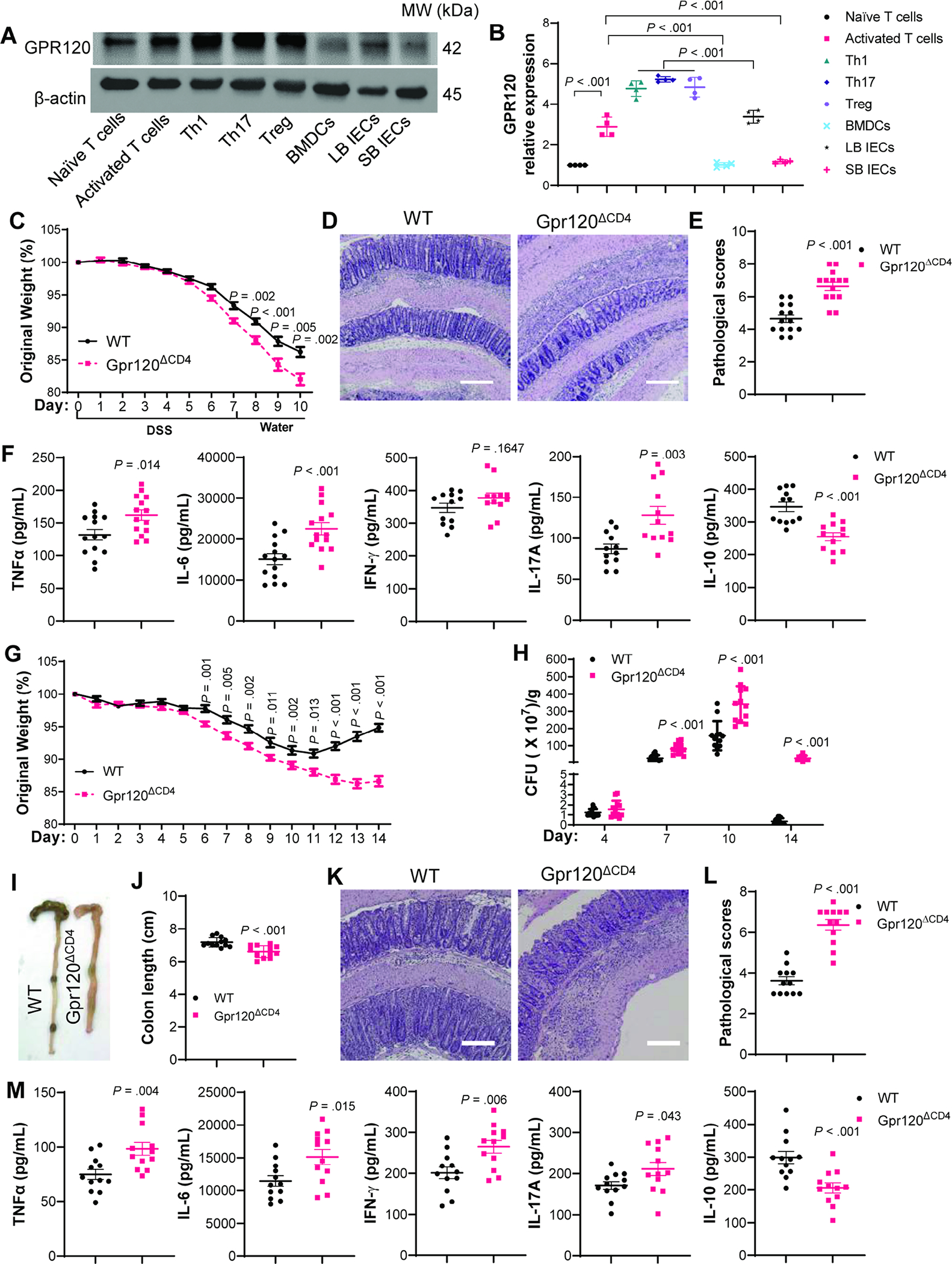Fig. 1. CD4+T cell-specific GPR120 KO mice develop more severe colitis upon DSS insult and C. rodentium infection.

(A–B) GPR120 expression was measured in naïve CD4+T cells, activated CD4+T cells, Th1, Th17, Treg, bone-marrow dendritic cells (BMDCs), large bowl epithelial cells (LB IECs), and small bowel epithelial cells (SB IECs) (N=4/group). Western bolts (A) and GPR120 protein relative expression (B). (C–F) Cd4creGpr120fl/+ (WT) mice and Cd4creGpr120fl/fl (Gpr120ΔCD4) mice (N=14/group) were administrated with 1.65% DSS (w/v) in drinking water for 7 days followed by drinking water alone for additional 3 days. (C) Mouse weight change. (D) Representative intestinal H&E staining. (E) Pathological score. (F) Colonic secretion of cytokines. (G–M) Cd4creGpr120fl/+ (WT) mice and Cd4creGpr120fl/fl (Gpr120ΔCD4) mice (N=12/group) were orally infected with C. rodentium on day 0, and sacrificed on day 14. (G) Weight change. (H) Fecal C. rodentium counts. (I) Representative gross morphology of the colon. (J) Colon length. (K) Representative intestinal H&E staining. (L) Pathological score. (M) Colonic secretion of cytokines. All data are pooled from three independent experiments. (D and K) Scale bar, 300 μm. (A) one-way ANOVA; (C, F, G, H, J, and M) unpaired Student t-test; (E and L) Mann–Whitney U test.
